T4K3.news
Cameron Maybin opposes MLB realignment shakeups
Maybin argues realignment would tilt balance and erase long-standing rivalries.

Expansion talk carries realignment questions that could reshape rivalries and playoff balance.
Cameron Maybin opposes MLB realignment shakeups
Major League Baseball has signaled growth through expansion, and commissioner Rob Manfred has noted realignment as a possible accompanying step. In speculative scenarios, divisions could be redrawn to reflect proximity, potentially changing playoff odds and the balance of power. Proposals imagine the Yankees, Mets, Phillies and Red Sox in the same division because of geographic closeness, a move that would alter the distribution of recent champions and the competitive landscape. A revamped South Division might include an expansion team in Nashville along with the Braves, Rays and Marlins, while the Central division could feature payroll dynamics with the Cardinals, Reds and White Sox positioned among lower-spending clubs.
Cameron Maybin publicly pushed back, arguing that realignment would tilt playoff balance, water down some divisions, and erase rivalries that drive October storylines. The discussion has drawn a spectrum of responses: Mets broadcaster Howie Rose described the idea as total destruction if the two leagues cease to exist, while Yankees broadcaster Michael Kay called the concept worth a try.
Key Takeaways
"Manfred’s realignment talk isn’t just about moving teams around, it tilts playoff balance. Some divisions get watered down others overloaded and rivalries that drive October storylines we love, vanish. Baseball needs competitive integrity, not manufactured shakeups."
Cameron Maybin on the proposed realignment
"total destruction"
Howie Rose on the idea of no two leagues existing
"worth a try"
Michael Kay on considering realignment as a possibility
Realignment talks reveal a tension between growth and tradition. If expansion leads to divisions that feel artificial or rearranged primarily by proximity, the sport risks alienating fans who prize long-running rivalries and geographic narratives. The outcome could hinge on whether investors, broadcasters and teams see more value in a bigger market footprint than in preserving the status quo.
Beyond optics, the plan tests the economics of ownership and media rights. A reshaped schedule and altered rivalries could shift attendance and renewals, shaping future revenue. The coming weeks will show how much weight executives give to growth signals versus the loyalties that keep fans engaged year after year.
Highlights
- Competitive integrity should guide change, not forced reorganization
- Realignment risks erasing the drama fans value in October
- Growth matters, but not at the cost of legacy rivalries
- Fans deserve clear plans, not surprises about where their teams sit
Backlash and balance risk from realignment
The potential realignment could provoke fan backlash, alter traditional rivalries, and raise questions about competitive balance. It may also affect broadcast deals and sponsorships as markets and schedules change.
The game may lean toward new markets, but memories of old matchups still draw most of the heat.
Enjoyed this? Let your friends know!
Related News
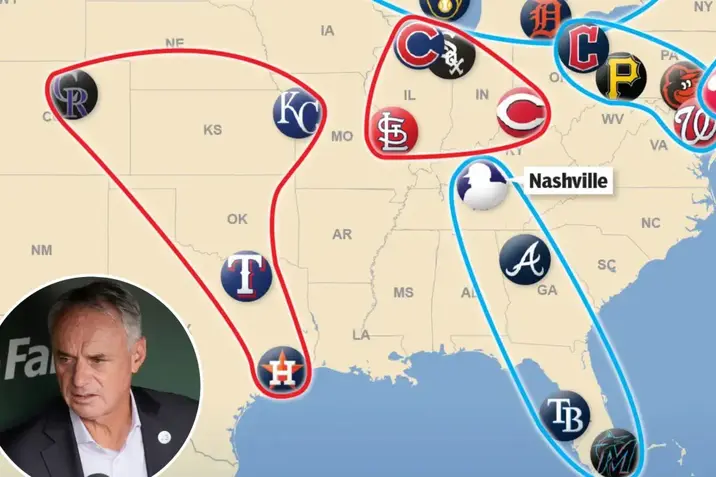
MLB realignment plan draws backlash
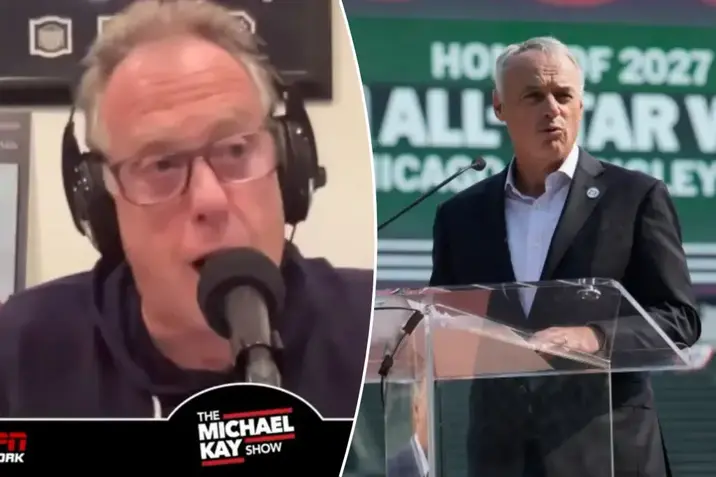
Possible MLB realignment under discussion
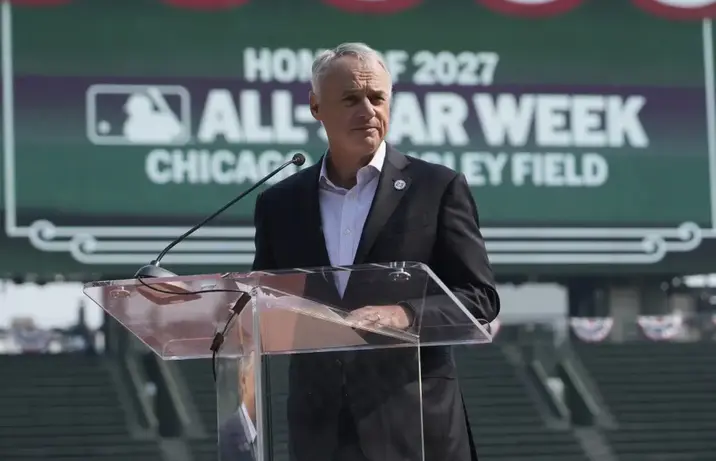
MLB maps new divisions to cut travel
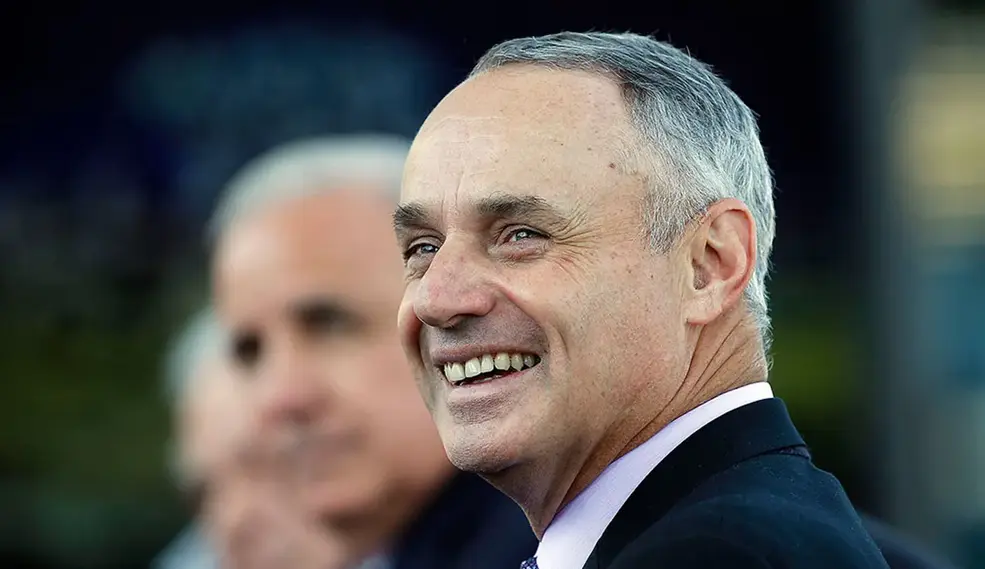
MLB expansion may trigger division realignment

MLB expansion could realign the map

MLB expansion realignment headlines
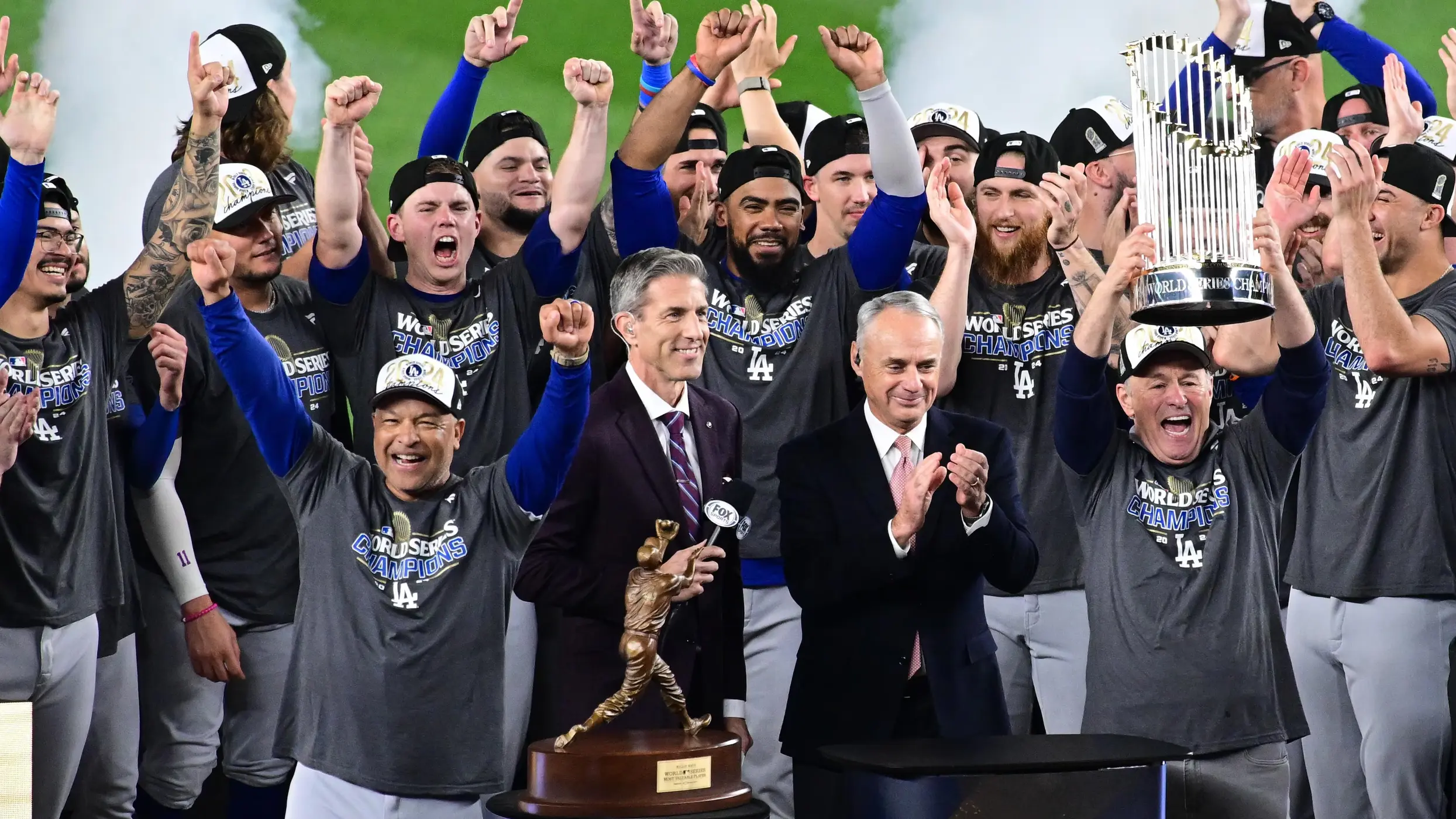
MLB weighs expansion and division realignment
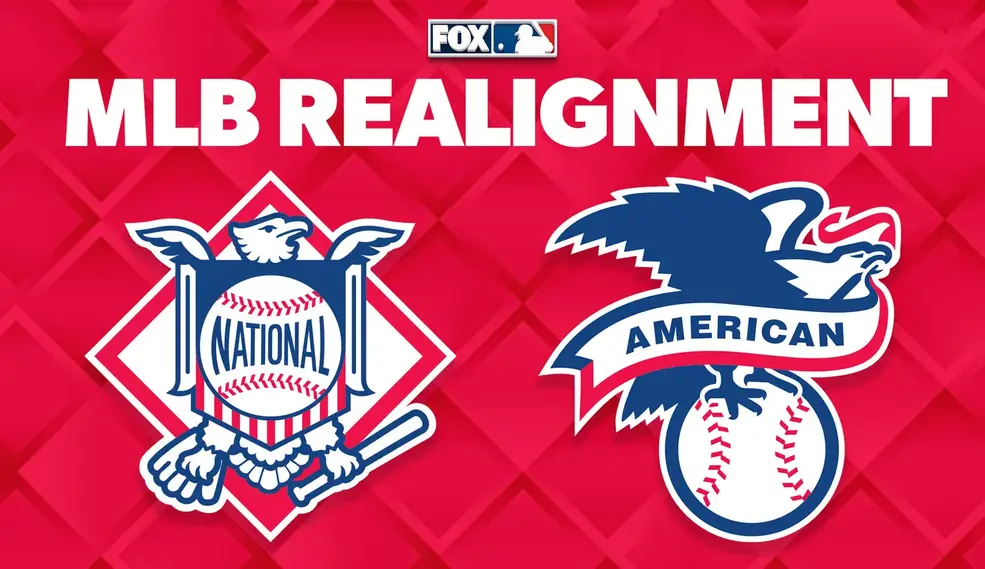
MLB considers eight-division realignment
